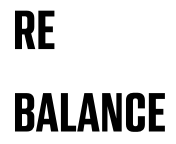
Sanctuary of Being
- Re-connecting with self and unlocking solace during trauma and uncertainty
Image by Levi Meir Clancy
‘This guesthouse does not believe
In doors or locks
It saw long ago
That what you try to keep out
Will somehow find its way in
It keeps a space for all'
- Zena Kazeme , poet, workshop facilitator, human rights activist, refugee
The Re-Balance Approach
RECOGNISE
Across the globe, people are experiencing unthinkable traumatic events every single day. This can include witnessing death and persecution in war-stricken areas, gender and sexual based violence and increasing adverse weather conditions such as flash floods and fire, all having a devasting impact on a person’s mental health and wellbeing.
Couple these experiences with layers and layers of systemic abuses of power, lack of adequate infrastructural support and the year and a bit of the Covid 19 pandemic, we are now seeing many people facing individual burn out without any recovery time as society pressures people to ‘return to a restored normal’.
But for many people, their normal is no better than pre-Covid times.
Trauma still exists and, in many cases, has become worse as numerous people have experienced huge loss of loved ones, their jobs, their homes and their sense of self.
‘The scale and ripple effect of these losses is not yet known as people are continually stretched beyond their limits’
REVIEW
The ripple effect of trauma also effects those supporting people through trauma itself. People on the frontline are at heighten risk of secondary trauma. In other words, people supporting others through traumatic events can often experience burnout themselves or develop mental ill health symptoms without directly witnessing or having been involved in a traumatic event.
In May 2021, people living in Gaza experienced an escalation in aggression that had an immediately traumatising impact. One school, Atfaluna, that provides support to a wide community of 4000 children with and without hearing impairments asked for emergency aid from the UK based charity, The Lady Fatema Trust.
The most pressing need was to provide trauma-informed support for the teachers and carers themselves – caring for the carers.
RESPOND
A needs assessment revealed that the staff felt they most needed were:
- Relaxation techniques for body and mind
- Managing negative thoughts better
- Skills for increasing resilience
- Restoring balance in body/mind/heart
We created a space for the staff to connect to themselves, their body as refuge and home and their minds as a guesthouse that has a range of visitors – some welcome, some not as much. We gave space for colleagues to be together just as they are.
A resilient person is someone who recognises when they need to take a pause. Sanctuary of Being creates the space for individuals and teams to attune to themselves and come to the present moment with ease.
What People Are Saying
“Sometimes a gang of sorrows arrive- that happens at times in life.”
— Atfaluna particpant
Recognising our expert:
Programme Director, Theatre Director, Coach, Writer and Facilitator
Our team of facilitators includes working artists, poets, painters, dancers, actors - whose own lived experience of trauma aids their ability to communicate effectively through their art to support the healing of others.
Overview.
Sanctuary of Being is a place to start a healing journey from traumatising events. It is applicable to different people in different contexts.
Sessions are delivered online or face to face. Each session focuses on aspects of restoring balance to our mind/body/heart/spirit. There is a weave of creative activities, psychomotor education, reflection and gift-making.
The purpose of the series of sessions are:
To increase personal and collective emotional resilience
To reframe the way our bodies hold difficult thoughts and feelings
To bring balance to body, heart, mind and spirit
To reduce stress
To learn techniques that can be shared with others
Each session is 1.5 hours and can take up to 15 participants.
How we work.
We know that each group is unique. Unique in it’s experiences, diversity and needs; some of which comes to the surface during delivery. This is why we take a very intimate approach to our work.
Our tried and tested step by step approach has proven to give us the best results:
Initial contact
Needs assessments with key contact and participants
Delivery of programme begins
Adaptation to content throughout based on emerging themes
Iterative feedback between Re-Balance, Partners, participants and lead programme contact
Handover of end report, resources and any next steps
We would love to hear from you if you would like to discuss how we might be able to create something bespoke to help your staff, volunteers or community find their sanctuary of being

